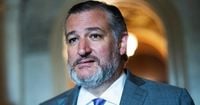The late-night television world has rarely found itself at the center of a national political storm, but this week, the saga surrounding Jimmy Kimmel, ABC, and the Walt Disney Co. has become a flashpoint in America’s ongoing debate about free speech, political influence, and the power of government regulators. On September 23, 2025, after a week of heated controversy, Disney announced the return of Kimmel’s late-night show to ABC’s airwaves—a decision that came after an extraordinary sequence of events involving White House pressure, regulatory threats, and a boycott movement that put the entertainment giant under intense scrutiny.
At the heart of the uproar was Kimmel’s on-air commentary about the reaction of President Donald Trump and his allies to the shooting death of conservative activist Charlie Kirk. According to reporting from multiple outlets, including The New York Times and NBC News, Kimmel’s remarks drew the ire of the Trump administration, which had already spent months targeting the comedian for his pointed criticism of the president and his supporters. But what followed was far from a routine spat between a late-night host and a politician.
As detailed by NBC News, the situation escalated when Federal Communications Commission (FCC) Chair Brendan Carr, a Trump appointee, appeared on a far-right podcast and made remarks that many interpreted as a direct threat to ABC’s broadcast license. Carr, referring specifically to Kimmel’s monologue, stated, “When we see stuff like this, look, we can do this the easy way or the hard way.” It was a line that, as Senator Ted Cruz of Texas later put it on his podcast “Verdict with Ted Cruz,” sounded “right out of Goodfellas. That’s right out of a mafioso coming into a bar going, ‘Nice bar you have here, it’d be a shame if something happened to it.’”
The regulatory saber-rattling didn’t happen in a vacuum. Around the same time, Nexstar Media Group—a major owner of television stations across the country and a company seeking FCC approval for a multibillion-dollar merger—announced it would stop airing Kimmel’s show. The timing was conspicuous, and ABC soon followed suit, pulling the late-night program “indefinitely.” Carr celebrated the outcome, taking what several outlets described as a “victory lap.”
The backlash was immediate and fierce. Hollywood figures, Democrats, and free-speech advocates condemned the move as an assault on the First Amendment, arguing that the Trump administration’s pressure campaign amounted to government censorship. “As the Committee with jurisdiction over the FCC, it is our constitutional duty to conduct oversight over this matter and demand Chairman Carr answer for this unprecedented attack on the First Amendment,” wrote Senate Commerce Committee Democrats in a letter to Committee Chairman Senator Ted Cruz, as reported by NBC News.
Some Republican lawmakers also broke ranks to criticize Carr’s actions. On NBC News’ “Meet the Press,” Senator Rand Paul of Kentucky called the FCC chair’s threats “absolutely inappropriate.” Senator Cruz, while defending Carr as “a good guy” and criticizing Kimmel, nevertheless warned that such a crackdown on speech could backfire on conservatives the next time Democrats hold the White House. On his podcast, Cruz did not mince words, labeling Carr’s threats “dangerous as hell.”
But the controversy didn’t end with Kimmel’s return to the air. Even as supporters of the Disney boycott celebrated what they saw as a victory—at least in terms of pressuring the company to reinstate the show—conservatives continued to call for a boycott of Disney. Sinclair, a major conservative affiliate-owner, announced it would not immediately return Kimmel’s show to its channels, signaling that the battle lines over free speech and media control remained firmly drawn.
Behind the scenes, the drama exposed a rarely seen intersection of political power, regulatory authority, and corporate decision-making. The FCC, an independent federal agency, wields significant influence over broadcasters through its control of licensing. Carr’s comments, in the context of an administration openly hostile to certain media figures, raised alarm bells about the potential for abuse. As The New York Times noted, the Senate Commerce Committee, which advanced Carr’s nomination and oversees the FCC, is uniquely positioned to investigate such threats and ensure that regulatory powers are not used as political weapons.
The Democrats on the committee, led by Ranking Member Senator Maria Cantwell of Washington, pressed their Republican colleagues to take action. “You have long prioritized conducting oversight to ensure our government is not being used to weaponize the censorship of speech. At a time when free speech is under threat, this hearing could not be more important for the American people,” the Democrats wrote in their letter to Cruz. They called for a robust oversight hearing with Carr, arguing that the integrity of the First Amendment was at stake.
Yet, the Republican response has been mixed. While Paul and Cruz voiced concern about Carr’s rhetoric, the broader GOP has remained largely silent or supportive of the administration’s approach. Cruz, as chair of the Commerce Committee, finds himself in a pivotal position. Will he follow through on his podcast rhetoric and hold Carr to account, or will the issue fade as political attention shifts elsewhere?
For Disney and ABC, the episode has underscored the fraught environment in which media companies now operate. The decision to pull Kimmel’s show—whether motivated by regulatory fear, business interests, or political calculation—sparked outrage from the left and skepticism from the right. The company’s reversal, returning Kimmel to the air, was met with both celebration and continued calls for boycotts. As conservative affiliate Sinclair’s stance demonstrates, not all industry players are ready to move on.
As for Kimmel himself, the late-night host has become a symbol in a larger battle over the boundaries of political speech and the role of government in regulating the media. His temporary removal, and the storm that followed, has prompted a rare moment of bipartisan agreement—at least in recognizing that government threats to broadcasters, regardless of political affiliation, are a dangerous precedent.
The coming weeks may determine whether the Senate Commerce Committee, under Cruz’s leadership, will take up the Democrats’ call for an oversight hearing and demand answers from Carr. For now, the Kimmel controversy stands as a potent reminder of the fragile balance between government power, corporate interests, and the fundamental right to free expression in American democracy.




